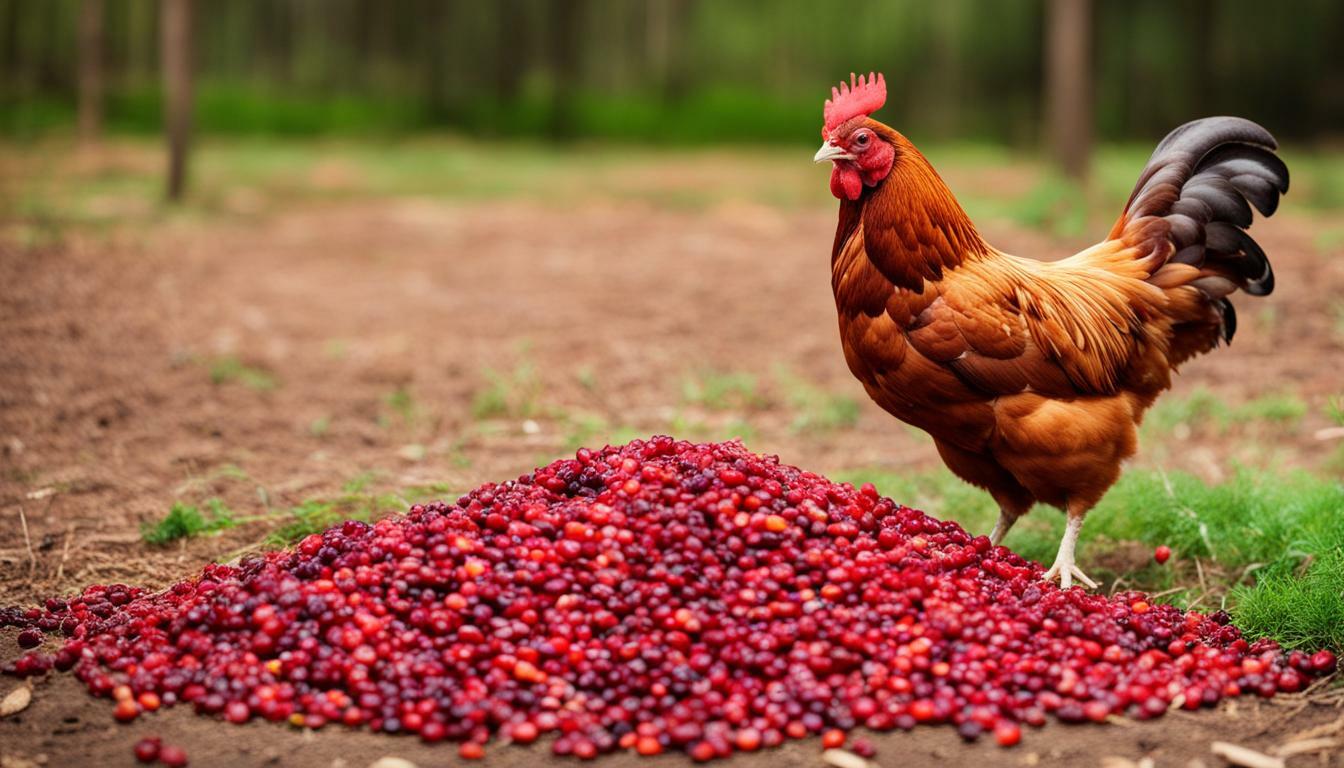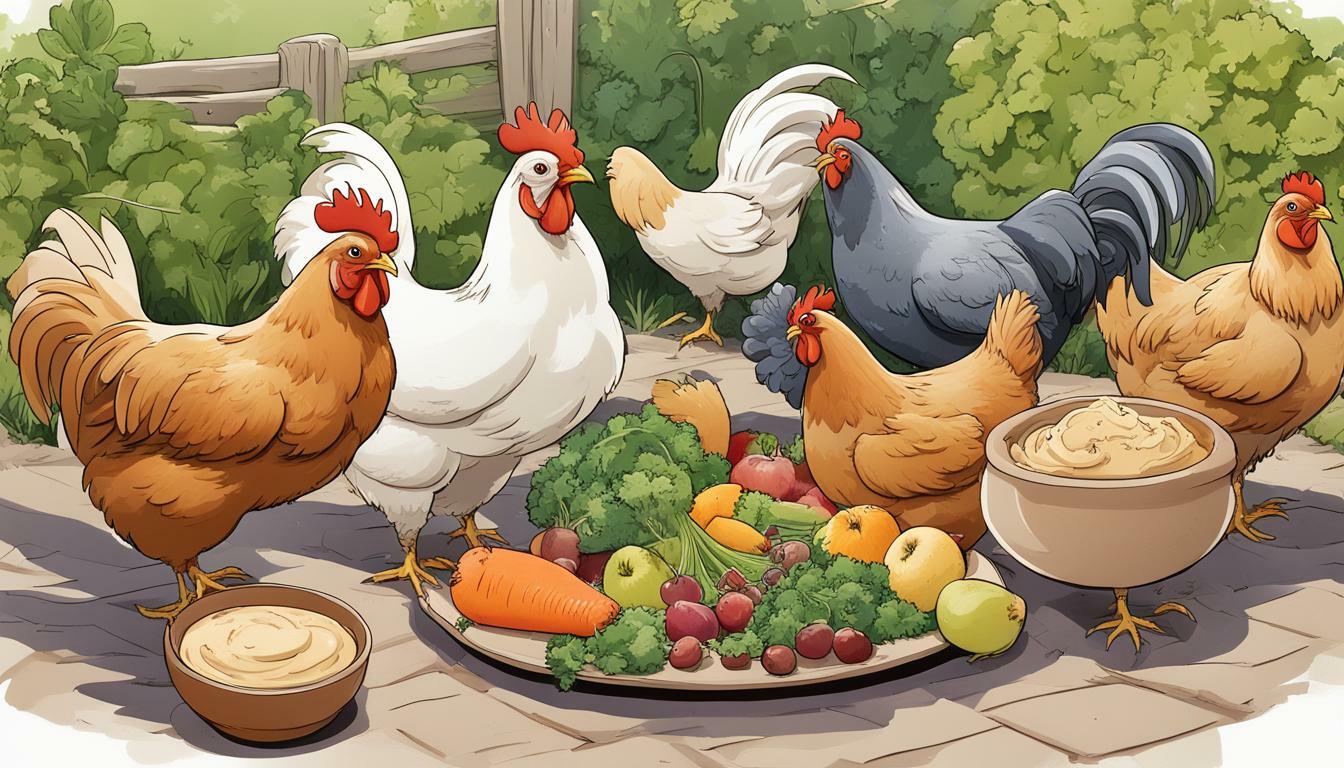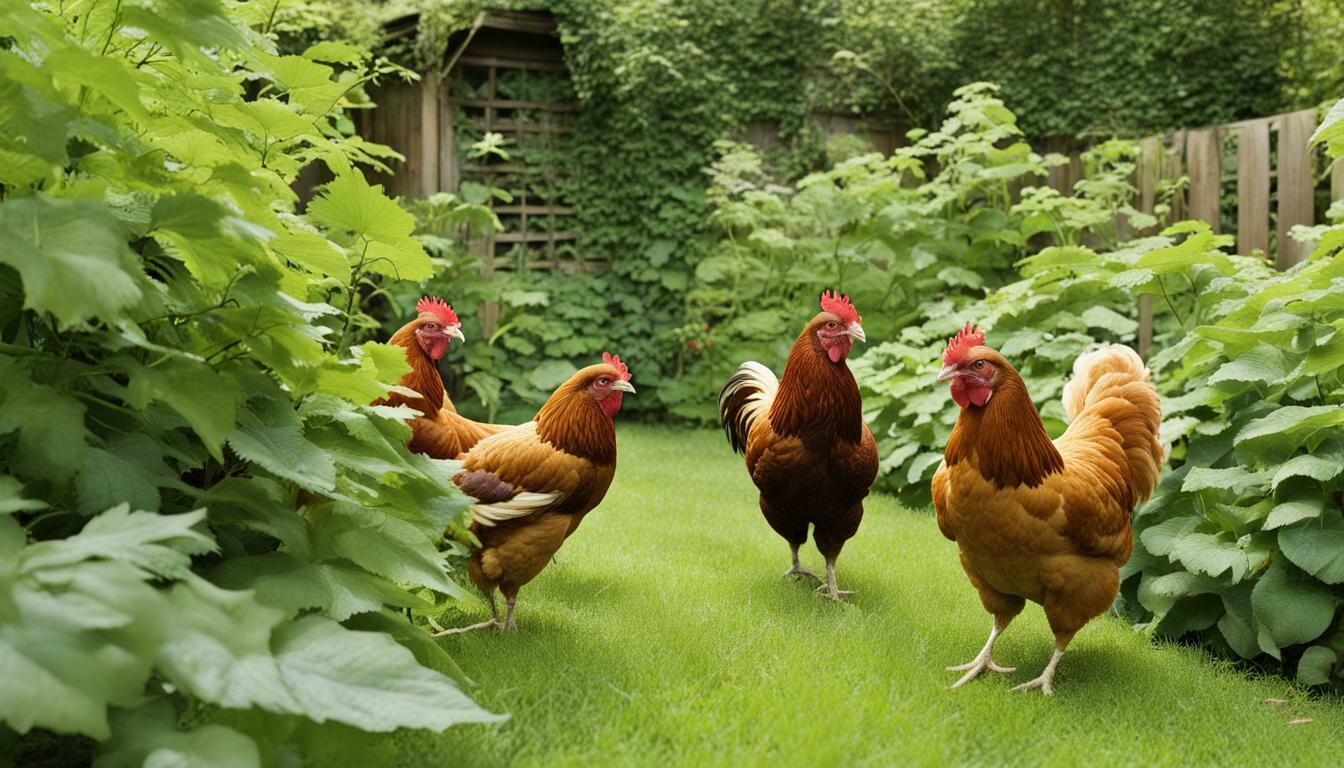Can Chickens Eat Dried Cranberries? Find Out the Answer!

Table of content:
- Are Cranberries Safe for Chickens?
- What are the Benefits of Feeding Cranberries to Chickens?
- How Many Cranberries Can Chickens Eat?
- Should You Soak Dried Cranberries for Chickens?
- Do Chickens Like Cranberries?
- What Fruits Can Chickens Eat?
- Do Chickens Eat Cranberry Sauce?
- How Often Can You Feed Chickens Cranberries?
- Is it Okay to Feed Chickens Cranberry Jelly?
- Can Chickens Have Too Many Cranberries?
- Conclusion
Cranberries are a nutritious fruit that can make a great dietary supplement for backyard chickens. However, chickens cannot survive on cranberries alone. Read on to learn more about feeding dried cranberries to chickens and the benefits and risks involved.
Are Cranberries Safe for Chickens?
In moderation, cranberries are safe for chickens to eat. Both fresh and dried cranberries contain beneficial nutrients and antioxidants. However, they are high in natural sugars, so chickens should only be fed cranberries occasionally as a treat.
Cranberries are not toxic to chickens. But overfeeding high-sugar fruits could lead to health issues like obesity, fatty liver disease, and unstable blood sugar levels. That’s why cranberries should be limited to treat-level quantities.
Dried cranberries are very concentrated compared to fresh berries. To avoid overdoing the sugars, dried cranberries for chickens should be fed sparingly. No more than 1-2 tablespoons per chicken once or twice per week is a good general guideline.
What are the Benefits of Feeding Cranberries to Chickens?
Cranberries have some great nutritional qualities that make them a healthy supplement for chickens. Here are some of the benefits of adding cranberries to your flock’s diet:
- Antioxidants – Cranberries contain antioxidant compounds like anthocyanins and vitamin C. These can boost chickens’ immune systems and overall health.
- Fiber – Cranberries provide a dose of fiber, which supports digestive health in chickens.
- Vitamins – Cranberries contain vitamin E, vitamin K, and B-vitamins. These nutrients contribute to healthy metabolism, muscles, blood, bones and feathers.
- Flavor – Chickens enjoy the tart, fruity flavor of cranberries. This makes them more likely to eat their feed.
- Foraging enrichment – Scattering cranberries in the run encourages natural foraging behavior. This provides mental stimulation.
Moderately incorporating cranberries into a balanced diet can give chickens an added health boost. The nutrients and plant compounds in cranberries offer protective effects. Their flavor makes feed more enticing to picky eaters. Plus, they allow chickens to exhibit natural foraging behaviors.
How Many Cranberries Can Chickens Eat?
When feeding chickens cranberries, moderation is key. Chickens can eat both fresh and dried cranberries. But they should only have them in limited portions.
As a general rule, chickens can have 1-2 tablespoons of dried cranberries per bird, 1-2 times per week. For fresh cranberries, chickens can have around 1/4 cup 2 times per week. Adjust portions based on the size of your breed. Smaller breeds like bantams should get less.
It’s also important not to feed chickens too many high-sugar fruits overall. Besides the cranberry allotment, chickens can have a few bites of other fruits like apples or grapes once or twice a week. But their main diet should still consist of grains and protein sources.
Excessive fruit intake can lead to health issues in chickens. So it’s best to keep fruit treats infrequent and in moderation. Track how much you feed to avoid overdoing it on the cranberries or any fruit.
Should You Soak Dried Cranberries for Chickens?
With any dried fruit, including dried cranberries, it’s a good idea to soak them before feeding to chickens. Dried fruit is dense and sticky. Soaking makes the pieces easier to digest.
To soak dried cranberries, simply place them in a bowl and add enough water to cover. Allow them to sit for 15-30 minutes, then drain off excess water before serving them to your flock.
You can also soak dried cranberries first, then chop them into smaller pieces. Cutting them up further reduces the risk of choking hazards.
Soaking is an optional preparatory step, but it’s recommended for safety. It also gives the chickens more accessible nutrition and hydration from the fruits.
Do Chickens Like Cranberries?
Most chickens love cranberries! Both fresh and dried cranberries tend to be a big hit with backyard flocks.
Chickens are naturally drawn to the bright red color of cranberries. The tart, fruity flavor also stimulates their appetites. Cranberries in any form can make an irresistible treat.
You’ll often see chickens eagerly peck and scratch for fallen fresh cranberries. Chickens also get excited when they spot vibrant dried cranberries mixed into their feed.
The motivation cranberries provide is another benefit. Choosing treats your flock loves, like cranberries, can be an easy training tool. You can use them to reinforce behaviors or encourage reluctant eaters.
Not all chickens may like cranberries, but they’re worth trying out. Observe your flock’s reactions to find their favorite fruits and vegetables as motivational snacks.
What Fruits Can Chickens Eat?
Cranberries are one of many fruits chickens can safely enjoy. Here are some other common fruits that chickens can eat:
- Apples
- Bananas
- Berries (blueberries, raspberries, blackberries)
- Cantaloupe
- Clementines
- Grapes
- Mango
- Papaya
- Peaches
- Pears
- Pineapple
- Plums
- Watermelon
Fruits for chickens should always be given in moderation due to natural sugar content. Good guidelines are 1-2 tablespoons per chicken, 1-2 times per week.
Offer fruits sporadically as treats, not daily dietary staples. Chop large fruits into bite-sized pieces. Also, introduce new fruits slowly to watch for any individual intolerances.
With a balanced approach, fruits provide beneficial nutrition and enrichment for chickens.
Do Chickens Eat Cranberry Sauce?
Cranberry sauce is a popular condiment for holiday meals. But is it also safe for chickens to eat as a treat?
In its purest form, cranberry sauce contains just cranberries and sugar cooked into a gelatinized sauce. This type of cranberry sauce is fine for chickens in very small amounts.
However, many commercial cranberry sauces have added seasonings that can be problematic. Onion, garlic, chives and other alliums are toxic to chickens. Celery and spinach also contain compounds that can cause health issues in flocks.
Read ingredient labels carefully before sharing any people foods, including cranberry sauce. Avoid sauces with onions, garlic, chives or other poultry-unsafe ingredients. Instead look for basic recipes with just cranberries, sugar and citrus flavors.
Even then, cranberry sauce should only be fed to chickens in tiny tastes, a teaspoon or less. The high sugar content quickly adds up. Chickens will enjoy the flavor, but too much can upset their digestive systems.
How Often Can You Feed Chickens Cranberries?
When giving chickens cranberries as a supplemental treat, less is more. Dried cranberries or fresh cranberries should only be fed to chickens occasionally.
A good general rule is to limit cranberry treats to 1-2 times per week at most. And portion sizes should be kept to 1-2 tablespoons of dried cranberries, or 1/4 cup fresh cranberries per chicken.
Spreading out cranberries over time prevents chickens from getting too many excess sugars. Limiting portions keeps their carbohydrate intake in check.
Chickens should never get cranberries or any fruits/treats every day. The bulk of their diet should still come from their regular organic layer pellets and scratch grains.
Treat cranberries like candy – a fun snack for chickens to enjoy only in light moderation. This keeps your flock’s nutritional balance in check while still letting them enjoy the benefits of cranberries.
Is it Okay to Feed Chickens Cranberry Jelly?
Cranberry jelly is a popular condiment, especially around the holidays. But is this sugary spread something humans can also share with chickens?
Pure, all-natural cranberry jelly that’s free of any poultry-toxic ingredients can be fed to chickens in extreme moderation. A teaspoon or less on occasion is unlikely to cause issues.
However, most commercial cranberry jelly contains high amounts of added sugar. The jelling agents and thickeners like cornstarch can also be problematic if over-consumed. And cranberry jelly may have onions, chives or other seasonings that are toxic to chickens.
For these reasons, cranberry sauce or jelly should be considered an occasional treat at best for chickens. Never offer it daily or in large portions.
Make sure your chickens always finish their own balanced feed before offering the smallest possible taste of cranberry jelly for novelty. Then wait several days before treating them to it again.
Can Chickens Have Too Many Cranberries?
Yes, chickens can have too many cranberries. While small portions provide benefits, overdoing cranberries can negatively impact chickens’ health.
The natural sugar in cranberries can promote unhealthy weight gain if consumed excessively. Obesity stresses chickens’ organs and leads to problems like fatty liver disease.
Too many cranberries can also cause loose droppings, indigestion and diarrhea. Rapid spikes and crashes in blood sugar from sugary fruits may make chickens hypoglycemic.
On top of health risks, feeding chickens too many treats like cranberries can lead to picky eating. Chickens may start refusing their nutritionally balanced feed in favor of sweeter fruits.
Moderation is key when incorporating any fruits into a chicken diet. Cranberries should be limited to 1-2 times per week and 1-2 tablespoons per chicken. Track your portion sizes to prevent overindulgence.
Conclusion
Cranberries make a fun, nutritious supplement for backyard chickens. Chickens enjoy the tart flavor of both fresh and dried cranberries. Cranberries also deliver beneficial nutrients like vitamin C, antioxidants and fiber. In moderation, they can be a healthy treat.
When feeding cranberries to chickens, proper portions are important. Limit dried cranberries to 1-2 tablespoons per chicken, 1-2 times weekly at most. Soaking dried cranberries makes them gentler on chickens’ digestive systems.
While chickens relish the taste of cranberries, these fruits are high in natural sugars. Too much can lead to obesity, digestive upset and other health issues. Cranberries should always be fed sparingly as part of a balanced diet. Maintain a measured approach to give your flock the benefits without the risks.
Welcome. I’m Adreena Shanum, the proud owner of this website, and I am incredibly passionate about animals, especially poultry. I founded adreenapets.com as a labor of love, stemming from my desire to share my knowledge and experiences with poultry enthusiasts worldwide.




